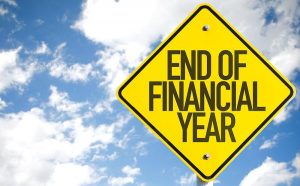If part of your wealth-building strategy does not involve end-of-year tax planning, we are here as trusted financial advisors (aka: your personal CFO) to offer a golden nugget of advice. Discuss tax loss harvesting with your financial advisor.
Leave the tax loss harvesting work to the professionals at Ascendant Financial Solutions. Use our Financial Fitness Fall Checklist for wealth management to ensure you are positioned well by year’s end.
What is tax loss harvesting?
Tax loss harvesting is a strategy that allows you to sell some assets at a loss to offset gains you have realized when other assets were sold at a gain. It’s only available for taxable accounts; you may not use the strategy in retirement accounts like IRAs and 401(k) If you have retirement accounts such as an IRA or a 401(k).
In other words, tax loss harvesting helps investors reduce their tax amount owed to Uncle Sam each year by offsetting what they claim. Here are the basics:
- An underperforming investment is sold.
- The funds raised from the investments that were sold are invested into a different security within your asset-allocation strategy.
- The loss is used to offset taxable capital gains.
Capital gains tax liability
If you’re like most people, your income will be taxed at a higher rate than your capital gains. Certain capital gains are also taxed at a lower rate than others. For example, long-term capital gains (tax applied to assets held more than a year) are generally taxed at 15%- 20% depending on your income. Short-term capital gains (tax applied to assets held less than 12 months) are generally taxed at the same rate as your ordinary income.
“Wash Sales Rule” can affect tax-loss harvesting
To make tax loss harvesting a viable strategy, the IRS’ Wash Sale Rule must be followed. The rule prevents an investor from taking a deduction on a loss and within 30 days buys the same or substantially identical stock or security.
If this rule is violated, the tax loss write-off will be invalidated. The “substantially identical security” rule is involved so it’s best to work with an investment advisor and tax preparer.
Is tax loss harvesting a good option for you and your portfolio?
Tax loss harvesting is complicated, and it pays to work with an experienced financial advisor who can holistically evaluate your portfolio and long-term goals to help you decide if and how to implement this strategy.
Are there other practical things I should be doing now to improve my financial health?
There are many other practical, investment-related benefits aside from tax loss harvesting that can help improve your financial health. Again, as an end of year strategy, use the fall financial checklist mentioned above to clean up your assets before the new year!
 A few examples include:
A few examples include:
- Plan ahead for Medicare open enrollment
- Education planning: What Are The Benefits Of A 529 Plan?
- Review your estate plan
- Review your beneficiaries
- Review your insurance policies
- Review your credit
Bottomline: a financial advisor in Flagstaff or Phoenix can help you evaluate mitigate taxes in various investments. To learn more about if tax loss harvesting can fit into your individual financial roadmap and overall financial planning strategy, our AFS team can help.
Always speak to your financial advisor before you make any decisions
It is in your best interest to speak to your financial advisor before making any decisions. Guessing in the tax planning arena does not suffice as a good plan. Your financial advisor in Phoenix can help with tax loss harvesting and well beyond, as it will be an actionable aspect of your comprehensive financial plan.
Because tax laws and brackets shift all the time, it’s important to rely on professionals who work as a team and make this their life’s work.
We hope that this article has helped you understand how tax loss harvesting can be an effective tool for your investment portfolio. You need to protect your retirement nest egg with smart tax planning. Download this free eBook for more insight.
Work with Ascendant Financial Solutions (AFS) – your personal Chief Financial Officer
 Before implementing any strategy, it’s best to consult with a financial advisor who can help you determine if the benefits outweigh the costs and if it is right for your specific situation.
Before implementing any strategy, it’s best to consult with a financial advisor who can help you determine if the benefits outweigh the costs and if it is right for your specific situation.
At Ascendant, we carefully inspect all aspects of your financial situation to ensure ongoing changes are executed with care. You can view your financial advisor as your personal CFO, helping guide you through life’s obstacles and opportunities, altering market conditions, and any other life-changing event.
Get your 2022 financial checklist from an Advisory Firm in Flagstaff, AZ!
As the key takeaways:
- End of year tax planning in Phoenix in Flagstaff is essential preserving wealth
- Tax loss harvesting can help minimize capital gains tax liability
- There are many practical, investment-related benefits you should consider
- Always consult your financial advisor before you make any decisions – or ask us for a second opinion
- It may be time for a risk assessment – and we are here to provide that for you as the market cycle has many feeling off balance
Ascendant is neither a law firm, nor a certified public accounting firm, and no portion of the commentary content should be construed as legal or accounting advice.


